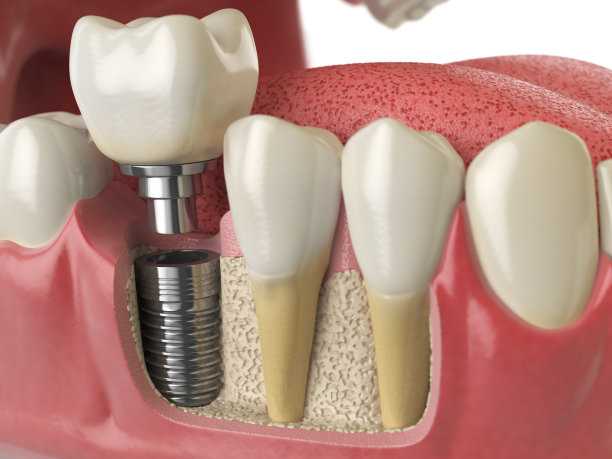Summary: Dental fillings are a common procedure aimed at repairing cavities and ensuring good oral health. This article explores essential tips and precautions for a successful dental filling experience and maintaining long-term oral health. It highlights the importance of proper preparation and follow-up care, outlines common materials used for fillings, discusses post-filling care practices, and emphasizes the significance of regular dental visits for sustaining oral health. By adhering to these crucial guidelines, patients can enhance their dental treatment experiences while assuring the longevity of their fillings and overall oral hygiene.
1. Proper Preparation for Your Appointment

Preparation is a key factor in ensuring a successful dental filling experience. Before your appointment, it is essential to communicate openly with your dentist about any concerns or fears you may have regarding the procedure. Knowing what to expect can greatly reduce anxiety and lead to a more relaxed visit.
Additionally, preparing a list of medications you are currently taking can help the dental team determine the safest approach for your treatment. Some medications may influence the type of anesthetic used or the healing process afterward, making this step vital.
Lastly, consider arranging a ride to and from your appointment, especially if you will receive sedation during the procedure. This allows you to focus solely on your dental experience without worrying about transportation afterward.
2. Understanding Different Filling Materials
Dental fillings come in various materials, each with its advantages and disadvantages. Knowing about these materials can help you make an informed decision. Composite resins, for example, are tooth-colored and ideal for repairing front teeth, offering aesthetic benefits. However, they may not be as durable as other materials.
On the other hand, amalgam fillings, made from a mixture of metals, are known for their strength and durability, making them suitable for back teeth. They are less noticeable than gold but are still more visible than composite fillings. Evaluating your specific dental needs with your dentist will guide you to choose the right material.
In some cases, gold fillings offer excellent durability and a longer life span but come with a higher price tag. This material may not be as popular due to its visibility but remains an option for those seeking a lasting solution.
3. Post-Filling Care Practices
After receiving your dental filling, immediate care is crucial for ensuring a smooth recovery. It is advisable to avoid eating hard or sticky foods for at least 24 hours post-procedure. These types of food can place unnecessary pressure on the filling, potentially causing it to loosen or damage.
Moreover, maintaining a consistent oral hygiene routine is essential. This includes brushing twice a day and flossing daily, ensuring the area around the filling remains clean. Ignoring this can lead to plaque buildup and increase the risk of future cavities.
Additionally, be mindful of any unusual sensations in the filled tooth. A filled tooth should feel normal after some time; if you experience sensitivity or discomfort, consult your dentist promptly. Early intervention can prevent further complications and ensure your filling lasts.
4. Importance of Regular Dental Visits
Regular dental check-ups play a pivotal role in maintaining long-term oral health, especially following a dental filling. Your dentist can closely monitor the condition of your fillings during routine exams and identify any potential issues early on.
These visits also provide an opportunity for professional cleaning, which helps prevent plaque and tartar buildup that could jeopardize the stability of your filling. Regular cleanings contribute significantly to overall gum health and reduce the risk of gum disease.
Furthermore, ongoing education about proper oral hygiene practices can occur during these appointments. Dentists can provide personalized advice tailored to your dental health needs, ensuring you feel equipped to manage your oral hygiene effectively.
Summary:
In summary, ensuring the success of your dental filling experience relies heavily on proper preparation, understanding filling materials, following post-care guidelines, and committing to regular dental visits. By embracing these essential tips and precautions, you can not only enhance your treatment experience but also safeguard your long-term oral health.
This article is compiled by Vickong Dental and the content is for reference only.
Vickong Dental
Vickong Dental is a large medical group established in Hong Kong in 2008 by professors from well-known medical universities in Guangdong and Hong Kong, as well as medical doctors from key national '985' universities (including Master's supervisors and senior professors). The chain of branches brings together expert dentists with PhDs and Master's degrees from Hong Kong and Mainland China, committed to providing high-quality dental treatment.
"Vickong Dental Practices the University Motto of 'Healing and Serving Society,' with a Stable Operation for Sixteen Years. It Has Been honored with Hong Kong Enterprise Leaders's Choice,' and is a Global Trusted Implant Center for the Nobel Implant System. Recommended by Hong Kong Metro Broadcast and Guangdong Television, it Serves Customers from Over Thirty Countries and Regions, Gaining the Trust and Favor of Citizens from the Guangdong-Hong Kong-Macau Greater Bay Area and Surrounding Cities.

Thousands of customers' unanimous praise
The most recognized and highly recommended dental service by customers in the Guangdong-Hong Kong-Macau Greater Bay Area
We Ensure You Receive Detailed Care and Attention Here
Hong Kong standards, Shenzhen prices, Your Trusted English-speaking dentists

Vickong Dental Medical-Grade Instrument Disinfection Process
Vickong Dental Medical-Grade Instrument Disinfection Process

Vickong Dental Chain: A Warm and Comfortable Environment for Treatment






Appointment Hours

Q&A
Why choose Vickong Dental?
Vickong Dental practices the university motto 「Medicine to Benefit Society」, with each branch bringing together highly qualified dentists with doctoral and master’s degrees from Hong Kong and the Mainland, and has maintained seventeen years of steady operation。Recipient of 「2024 Hong Kong Enterprise Leaders Brand」, 「2025 Hong Kong Enterprise Leaders Brand」, a Nobel Biocare Global Trusted Implant Center, and a brand recommended by Metro Radio Hong Kong and Guangdong TV。
To date, we have served customers from more than thirty countries and regions,earning exceptionally high word-of-mouth recognition and trusted recommendations from residents across the Guangdong-Hong Kong-Macao Greater Bay Area and surrounding cities
We have eight major branches in Zhuhai、Shenzhen,and a consultation and service assurance center in Hong Kong,so you can book a free consultation at any time for any questions,which is very reassuring.
If I do not accept the quotation after the CT scan, will I be charged??
No! As long as the actual treatment has not started, you will not be charged any fees.
Will there be any additional charges during the treatment process?
No, there won’t be any additional charges. Before treatment begins, we will clearly explain the treatment plan and its corresponding fees. Only after the patient agrees and signs the consent form will we proceed with the dental service.
Can I pay in Hong Kong dollars?
Yes. Vickong Dental accepts payment in Hong Kong dollars. The amount will be converted based on the exchange rate of the day, and the applicable rate will be clearly communicated to you in advance.
Can I reschedule my appointment at any time?
Yes. Please contact us via **WeChat** or **WhatsApp** as early as possible, providing your original appointment time and details, along with your preferred new date and time slot for rescheduling.













